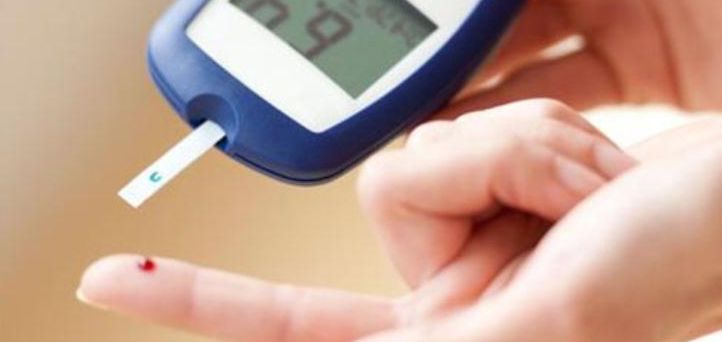Diabetics are often worried about blood sugar swings. Blood sugar refers to the amount of glucose present in your blood and is measured in mg/dL. Did you know the glucose levels in your blood change throughout the day as well as night? This level is dependent on when, what and how much you eat, and whether you are a couch potato or a live wire.
Understanding
“Normal” blood sugar levels
If
you go to a doctor to get your blood sugar levels tested, he will
conduct two tests. One on empty stomach (after 8 hours of fasting,
usually in the morning) and second on two hours after eating. Normal
fasting blood sugar level is usually between 70 and 99 mg/dL, whereas
normal blood sugar level two hours after eating is under 140 mg/dL.
As you can see there is a wide range when it comes to your blood sugar levels. Your blood sugar can increase or decrease. However, if you know the reasons for these swings, you can be proactive and prevent them. You can track the fluctuations and keep your diabetes in check.
Causes for swings in blood sugar
- Caffeine and artificial sweeteners: You would be surprised to know that an averagecup of coffee contains around 95 mg of caffeine! Whether you are drinking regular brewed, espresso, instant or decaf type, caffeine is present in all in varying amounts. Similarly, diet drinks and beverages loaded with artificial sweeteners can also cause variations in blood sugar. However, since every person responds differently to caffeine and artificial sweeteners, it is advisable to track how it impacts your blood sugar.
- Common cold and flu: If you have contracted a severe cold or flu and taking medications for the same, expect your sugar levels to spike. The best way to keep your blood sugar levels in the normal range is to stay well-hydrated. So guzzle on healthy fluids, water and other calorie-free beverages in ample quantity.
- Stress: When you are highly stressed, your body releases hormones like epinephrine and cortisol to help you cope with the stress. This mechanism is known as fight-or-flight response during which these hormones elevate your blood sugar level. People suffering from Type 2 diabetes are more prone to such cases. It is also observed that due to stress, diabetics may take their health very lightly – they don’t exercise or eat a healthy diet. They may even consume excessive alcohol or forget to check their glucose level. As a result, their blood sugar goes haywire. The best way to maintain sugar levels caused due to stress is to stay calm and relax.
- Lack of sleep: A human body needs an average of 6-8 hours of uninterrupted sleep. Sleep is our body’s natural mechanism to stay healthy. Lack of sleep can lead to stress, further resulting in a higher blood sugar level. It is important to follow a good sleep routine and stick to it religiously.
- Medications: A diabetic patient may experience changes in blood sugar level also due to insulin, steroids and certain medications related to blood pressure, thyroid, birth control, depression and several other illnesses. In fact, according to an independentpublication ‘Diabetes in Control’, there are 390 drugs that can alter blood sugar in a person. Hence, it is recommended to take medication strictly as per your doctor’s prescription.
- Alcohol: Even alcohol can cause your blood sugar to go haywire because it contains a lot of carbohydrates. You will initially experience a rise followed by a drop. This drop can last for as long as 12 hours. The American Diabetic Association recommends just one drink for women and two for men. So think before you sip.
- Climate: Believe it or not, changes in climate can step up or reduce your blood sugar. During hot days, diabetics may get dehydrated due to which there is a higher concentration of blood sugar and kidney’s normal function is interrupted. The kidneys may not flush out any extra glucose from the body. So, it’s advisable to stay hydrated. In cold temperatures, there are higher chances of falling sick, which may cause blood sugar to change. Keep yourself warm to avoid such a condition.
- Exercise: Yes, exercise is good for you, but if you are a diabetic, try getting a personalized exercise plan to make sure you don’t experience spikes and troughs in your blood sugar levels. When you exercise, your heart rate increases. This will cause a sharp increase in your blood sugar level followed by a drop. So intense exercising is not something you want, as it may cause your sugar levels to drop for at least 24 hours. You will benefit from munching on a snack before you start exercising. Diabetics should check their blood sugar levels before, during and after exercising and take remedial measures accordingly.
Diabetes does not mean that you worry about blood sugar fluctuations constantly and stop living your normal life. What is important is that you monitor it at regular intervals, eat healthy, exercise daily and schedule routine visits to your doctor.



 Previous
Previous









0 Comments